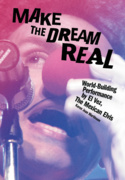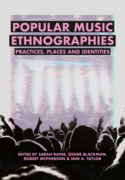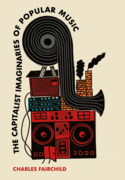Urban Music Governance (Book)
What Busking Can Teach Us about Data, Policy and Our Cities
A transnational exploration of street performance, this original interdisciplinary study examines the intricate limits of legality, data visibility and resistance from the perspective of those working at the social and regulatory margins of society. Based on fieldwork, it is a lively account of why the practice matters today. 18b&w illus.
A PDF version of this book is available for free in Open Access: Urban Music Governance: What Busking Can Teach Us about Data, Policy and Our Cities. It has been made available under a Creative Commons Attribution Non Commercial ShareAlike (CC BY-NC-SA) Licence and is part of Knowledge Unlatched.
Edition
What happens when precarious urban cultural labourers take data collection, laws and policymaking into their own hands? Buskers have been part of our cities for hundreds of years, but they remain invisible to governments and in datasets. From nuisance to public art, this cultural practice can help us understand the politics of data collection, archives, regulatory frameworks and urban planning. Busking also responds to underlying questions on the boundaries of the right to the city – and who has a voice in shaping how our cities are planned and governed.
A transnational exploration of street performance, Urban Music Governance examines the intricate limits of legality, data visibility and resistance from the perspective of those working at the social and regulatory margins of society. Based on a decade of fieldwork in Rio de Janeiro and Montreal, this book puts forward a lively account on why such an often-overlooked practice mattes today.
By investigating the role of busking in contemporary society, Urban Music Governance presents an original interdisciplinary study that exposes how power dynamics in policymaking decide issues of access – and exclusion – around us, above and below ground.
Jess Reia is an Assistant Professor of Data Science at the University of Virginia, USA, working on data justice, technology policy, and urban governance.
Foreword By Will Straw
Acknowledgments
Introduction: What does street performance teach us about cities?
Part I | Numbers and norms
- More than numbers: Counting, categorizing and describing buskers across time
- Regulation: Engaging with (dis)order in everyday life
Part II | Above ground and beyond regulation
- Legitimation: The blurred boundaries between policy and control
- Disputes: Busking as public service and law-making
Part III | Going underground, being understood
- Disobedience: Lawbreakers and talented stars
Postface - Pandemic, digitalisation and evidence-based policy
Bibliography
Index














